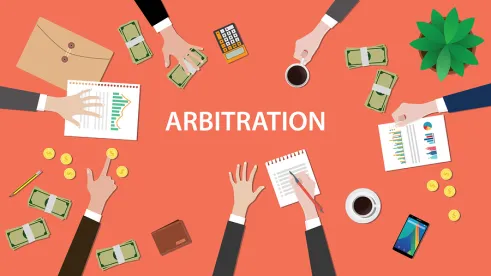2021 marked a new chapter for arbitration in Ecuador: after re-joining the International Centre for Settlement of Investment Disputes Convention in June, Ecuadorian Executive Decree No. 165 in August introduced Regulations to add to and improve the existing legal framework for arbitration as it results from the Ecuadorian Arbitration and Mediation Law (“AML”). The AML, which was enacted in 1997 and amended in 2015, had been criticised for its lack of clarity.
Of the 15 new Regulations introduced to improve the existing arbitration law, the following are particularly noteworthy:
-
Arbitration involving the State and State entities: Under the AML, State entities may agree to both domestic or international arbitration – before or after a dispute arises, and when it is permitted by law or an international treaty. It was not clear, however, in which instances the public entity had to seek the Attorney General’s prior approval. The Regulations clarify that, pursuant to Article 190 of the Ecuadorian Constitution, for international or domestic arbitration, arbitration agreements concluded after a dispute has arisen are subject to approval by the State Attorney General. Approval is always required, however, if the state entity agrees to international arbitration with a foreign seat.
-
Scope of the arbitration agreement: the Regulations innovate by explicitly binding certain non-signatory parties. The arbitration agreement is now binding on (i) those whose consent to arbitration derives, according to good faith principles, from their active and decisive participation in the negotiation, performance, execution or termination of the legal business that includes either the arbitration agreement or to which the agreement is related; (ii) those who intend to claim rights or benefits from the legal business, such as successors, assignees, among others.
-
Arbitrators and arbitration institutions’ responsibility: in an unusual move, the Regulations explicitly address potential liability of arbitrators and arbitration institutions. They provide that arbitrators must comply with their obligations as stipulated in the arbitration agreement and will be liable for damages caused by gross negligence or wilful misconduct. The parties and the arbitrators may agree (directly or by reference to a regulation of an Arbitration and Mediation Center) that any claim related to arbitrators’ liability will be resolved through arbitration. The Regulations also specify that arbitration institutions, and even their directors and employees, can be liable for damages arising out of their gross negligence or wilful misconduct.
-
Precautionary measures: the Regulations address provisional measures in more detail than the AML, and expressly allow arbitral tribunals or emergency arbitrators to order any such measure that they consider necessary to: (i) maintain or re-establish the status quo pending the resolution of the dispute; (ii) prevent the continuation of any current damage, or the materialization of an imminent damage or impairment of the arbitration proceeding; (iii) preserve assets subject to the proceedings or, in general, assets of the debtor or creditor; (iv) preserve relevant evidence; (v) guarantee compliance with the obligations in the arbitration proceeding; or (vi) preserve the jurisdiction of the arbitral tribunal.
The Regulations also expressly grant the arbitral tribunal the power to modify, suspend or revoke any precautionary measure or preliminary order either at the request of a party or, in exceptional circumstances, on its own initiative, after notifying the parties. Further, the arbitral tribunal may modify, suspend or revoke any precautionary measure issued by a judge or emergency arbitrator before the constitution of the arbitral tribunal.
-
Annulment of award: the Regulations take a restrictive approach to the annulment of awards, and provide that courts must apply the principle of minimal judicial intervention. The President of the Provincial Court must consider: (i) whether the party seeking annulment has made an unequivocal and timely claim before the arbitral tribunal of the issue that generates the claim; (ii) whether a partial annulment can be granted, otherwise the annulment will be total; (iii) that the mere existence of an annulment ground is insufficient in the absence of certain and irreparable damage; (iv) that annulment will be denied if the grounds could have been corrected during the proceedings and the interested party failed to do so. In case of doubt, the validity of the award should be preferred and the President of the Provincial Court shall dismiss the annulment action.
-
Enforcement of awards: any of the parties may request the lower civil court of the domicile of the losing party or the location of the assets to enforce the award. International arbitral awards will be enforced in the same manner as domestic awards by the same judges and without the need for an exequatur process. The party against whom the award is enforced may only challenge the enforcement action if it proves payment of the award, or if the enforcement of the award has been suspended or set aside by the competent authority. The Ecuadorian judges will prohibit any party from obstructing the enforcement of an award.
These Regulations further confirm the main principles of independence, flexibility, autonomy and also guarantee confidentiality of the arbitral proceedings. These pro-arbitration provisions reflect Ecuador’s goal of improving and modernizing its arbitration law and constitute a positive development for international arbitration in the country. The future will tell whether they result in increased recourse to arbitration in Ecuador.


 />i
/>i

